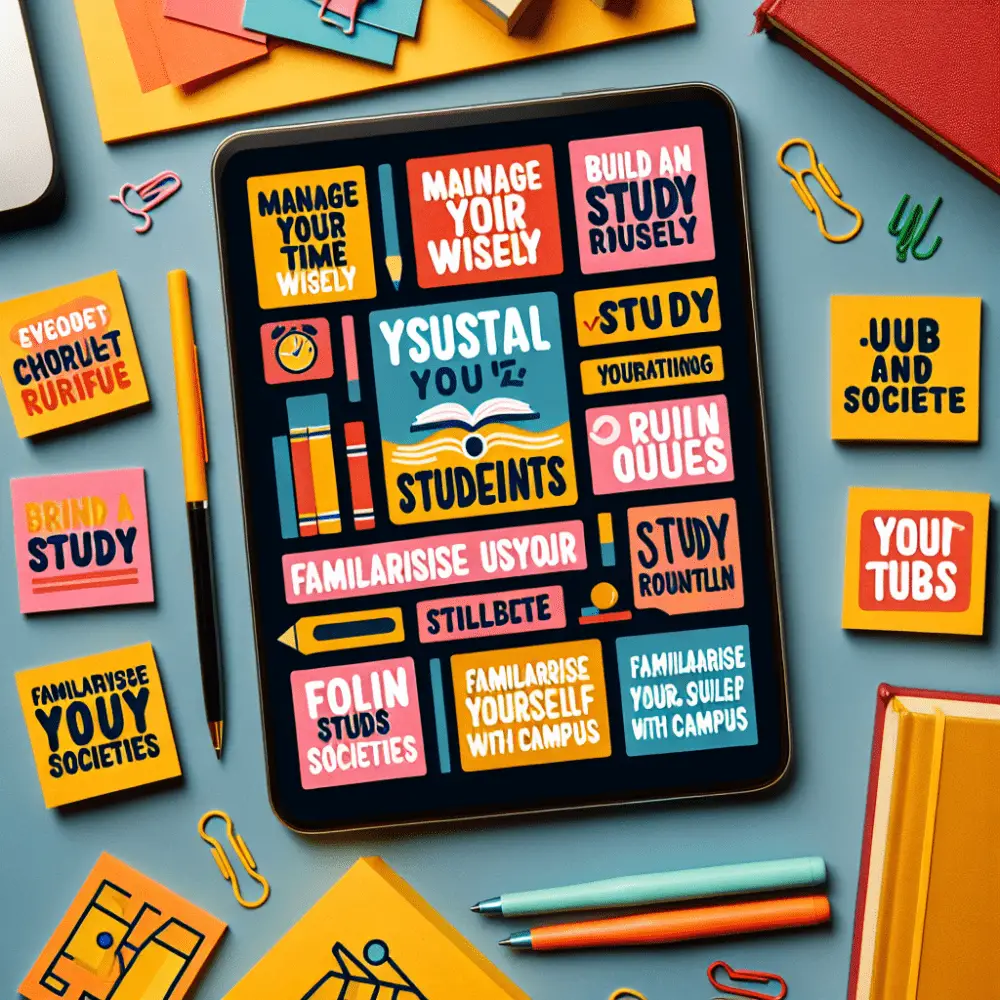
Embarking on the journey of higher education is an exciting and pivotal moment for many young adults. The transition from high school to university can be daunting, but with the right mindset and tools, first-year students can set themselves up for success. In this article, we will explore essential tips for first-year university students to help them navigate through this new chapter of their lives.
Whether you are moving away from home for the first time or staying in your hometown, starting university is a significant milestone that requires careful planning and preparation. From time management to study habits, these tips will help you make the most of your first year at university and lay a solid foundation for the rest of your academic career.
Maintain a Healthy Work-Life Balance
One of the key challenges that first-year university students face is finding a balance between academics and social life. It is important to prioritize your studies while also making time for social activities and self-care.
Creating a schedule that includes dedicated study hours, exercise, socializing, and relaxation time can help you stay on track and prevent burnout. Remember that it is okay to say no to social events if you have assignments or exams coming up. Finding the right balance will help you stay focused and motivated throughout the academic year.
Develop Strong Study Habits
Effective study habits are essential for success in university. As a first-year student, you may need to adjust your study routine to accommodate the increased workload and higher expectations of university-level courses.
Start by organizing your study materials, setting specific goals for each study session, and creating a distraction-free environment. Use active learning techniques such as summarizing key concepts, teaching others, or testing yourself regularly to reinforce your understanding of course materials.
Utilize Campus Resources
Universities offer a wide range of resources and support services to help students succeed academically and personally. Take advantage of these resources by visiting the library, attending workshops on time management or study skills, meeting with academic advisors or career counselors, joining student clubs or organizations, and seeking help from tutors or writing centers when needed.
Remember that asking for help is not a sign of weakness but a proactive step towards achieving your goals. Building relationships with professors, classmates, and other students can also provide valuable networking opportunities and support throughout your university journey.
Stay Organized
Staying organized is crucial for managing the demands of university life. Keep track of deadlines, assignments, exams, and other important dates by using a planner or digital calendar. Create to-do lists with priorities ranked based on deadlines and importance to ensure that you stay on top of your responsibilities.
Set realistic goals for each day or week and break down larger tasks into smaller steps to make them more manageable. Establishing routines such as setting aside time each day for studying or exercising can also help you stay disciplined and focused on your goals.
Take Care of Your Mental Health
Your mental health is just as important as your physical health when it comes to academic success. The transition to university life can be challenging at times, so it’s essential to prioritize self-care activities that promote mental well-being.
Maintain healthy habits such as getting enough sleep, eating nutritious foods, exercising regularly,
and practicing relaxation techniques like meditation or deep breathing exercises.
Make time for hobbies or activities that bring you joy
Seek out counseling services provided by the university if you are feeling overwhelmed
Remember that it’s okay not
to be okay at times reach out
for support when needed
by talking
to friends,
family members,
or mental health professionals.
Frequently Asked Questions (FAQ)
What should first-year students expect in terms of workload?
First-year students should expect an increase in workload compared to high school due
to more challenging courses,
higher expectations,
and greater emphasis on independent learning.
It’s crucial
to manage your time effectively,
prioritize tasks based on deadlines
and complexity,
and seek help when needed.
How can first-year students make friends in campus?
Making friends in campus may seem intimidating at first but remember that many other students are in the same boat.
Participate in orientation events,
join clubs or organizations that align with your interests,
attend social gatherings organized by residence halls ora ask someone from class if they wantto grab coffee.
Being open-minded friendly,andapproachablecanhelpyou buildconnectionsandfoster meaningful relationships.
In conclusion,prioritizing academics,sociallifeworkingonthestudyhabitsmaking useof campus resources,staying organized,takingcareofyourmentalhealth,andfosteringstrongrelationshipsareessentialtipsforfirstyearuniversitystudents.Successinuniversityrequiresadaptingtonew challenges,resilience,andtheabilitytoreachoutforhelpwhenneeded.Bystayingproactivemandengagedinyouracademicandpersonaldevelopment,youwillbegintobuildasolidfoundationforyourfuturecareerandincreaseyourchancesofsuccessinuniversityandbeyond.Make themostofyourfirstyearatuniversitybyimplementingthesetipsandsuccessstrategiesintoyourdailylifeandexperienceallthatthismilestonehasinstoreforyou!












